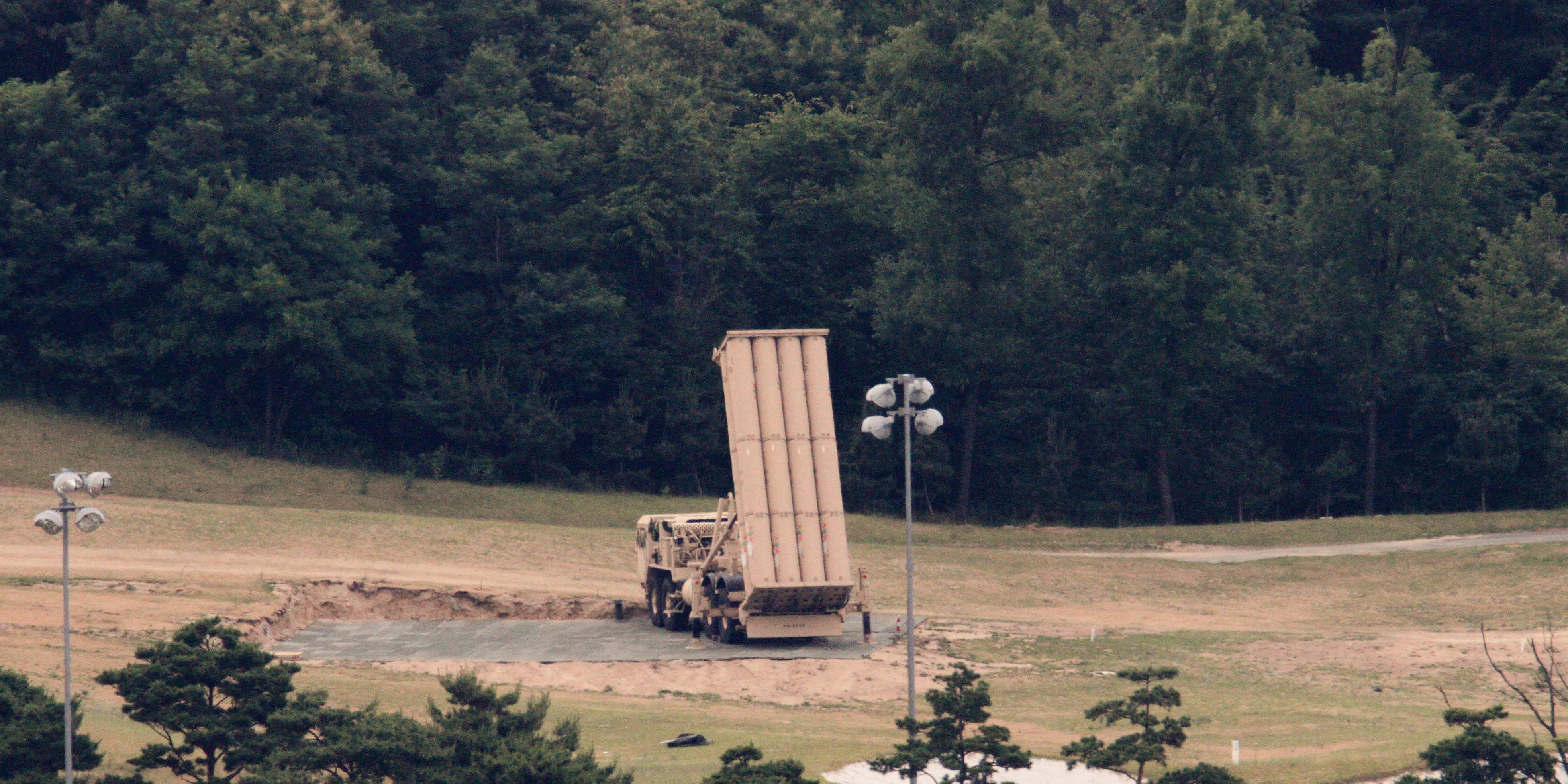- The US military is reportedly considering installing an anti-missile system in Germany to bolster European defenses.
- Experts warn that deploying the anti-missile system could inflame tensions with Moscow.
- The Pentagon denies there are any plans to install the system in Germany.
The US military is reportedly considering installing an anti-missile system in Germany to bolster European defenses at a time when the relationship between Washington and Moscow is already at a historically low point.
Experts warn that such a move could significantly raise tensions with Russia, particularly given the Kremlin already condemned the US military’s installation of the same system in South Korea.
The powerful anti-missile system, known as the Terminal High Altitude Area Defense (THAAD) system, has been requested by the US European Command for some time, and deploying it there could please US allies wary of both Iranian and Russian aggression.
Two sources familiar with the matter told Reuters that the US military is actively discussing THAAD's deployment in Germany, which could help make up for a radar gap connected to a delay in the completion of the Aegis Ashore missile defense site in Poland. The site won't be finished until 2020.
Meanwhile, following President Donald Trump's decision to withdraw the US from the Iranian nuclear deal, there are reportedly concerns among some in Europe about Tehran's ballistic missile capabilities.
In this context, deploying THAAD to Germany "would be a further political message to the Europeans that we're serious about protecting our allies" an unnamed US military official told Reuters. "The initial assessment is that Germany would very likely not have a problem with a THAAD deployment."
Experts said that if this were to occur, Moscow would undoubtedly condemn the move, but also acknowledged that NATO has valid reasons to be concerned about Russia's activities in the region.
"I am sure the Kremlin will raise strong concerns about any potential US THAAD deployment in Germany, " Heather Conley, director of the Europe Program at the Center for Strategic and International Studies (CSIS), told Business Insider. "They had already raised concerns about the THAAD deployment in the Pacific, along with the Chinese."
"As we approach the NATO Summit in July, this potential deployment may raise concerns among allies as well," Conley said. "But having said all this, Russia has reportedly placed Iskander missiles in Kaliningrad, so there are legitimate NATO force protection issues to consider as well."
Jeffrey Rathke, a senior fellow and deputy director of the Europe Program at CSIS, also pointed out the deployment of THAAD in Germany wouldn't necessarily make up for the radar gap created by the delay in the completion of the Aegis Ashore missile defense site in Poland due to the system's range (roughly 124 miles).
"But the system is transportable, so having it [in Germany] would make it easily movable to other parts of the European theater when needed," Rathke added.
With that said, the Department of Defense has denied there are any plans to station THAAD in Germany.
"There are currently no plans to station THAAD systems in Germany," Pentagon spokesman Eric Pahon told Reuters. "We do not discuss potential future military planning, as we would not want to signal our intent to potential adversaries. Germany remains among our closest partners and strongest allies."

